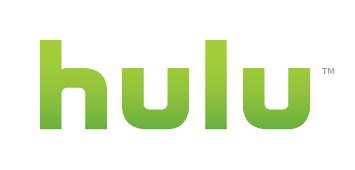Eighteen Republican senators joined twenty House Republicans in a letter writing campaign to get FCC Chairman Julius Genachowski to drop Net Neutrality from the agenda at the Federal Communications Commission, calling the policy “counterproductive,” and would create a “chilling effect” on broadband investment in the future.
Many GOP members signing the latest round of letters also took issue with Net Neutrality a few years ago when it was a hot topic in Washington.
After Sen. Kay Bailey Hutchison’s aborted attempt to de-fund FCC enforcement of Net Neutrality regulations, the past month has seen a full frontal assault on Net Neutrality by many Republicans. Minority Leader John Boehner (Ohio) and Republican Whip Eric Cantor (Virginia) co-authored a letter to President Barack Obama suggesting he intervene to drop Net Neutrality policies and instead focus on the national broadband plan.
Any regulations that would prohibit Internet service providers from managing their networks, they said, would discourage those companies from investing the billions of dollars needed to expand broadband access.
“We believe that network neutrality regulations would actually thwart further broadband investment and availability, and that a well-reasoned broadband plan would confirm our view. So to hastily begin the process of adopting network neutrality rules months before issuing such a plan implies that politics are driving the FCC’s decision-making process.”
Ranking Member of the House Communications, Technology & the Internet Subcommittee, Rep. Chris Stearns of Florida fired off a letter to Genachowski echoing the same sentiment:
“At first glance, net neutrality regulations may appear reasonable and harmless, but, a deeper examination reveals that net neutrality is neither reasonable nor harmless. These mandates would harm consumers, reduce competition, and discourage new investment and innovation at a time of tremendous technological growth.”
“The FCC bears the responsibility to prove a market failure, especially since its 2002, 2005, 2006, and 2007 decisions on cable modem service, digital subscriber line service, broadband over power line service, and wireless broadband service were predicated on the notion that the broadband market nationwide is competitive and that regulation is unwarranted,” Stearns wrote.
Of course, during the years he cites, the Republicans enjoyed a majority on the Commission that made that finding.
Stearns and his colleagues suggest that the FCC could only intervene if substantial evidence existed the broadband marketplace was collapsing.
The Senate Republicans, led by Senator Sam Brownback of Kansas and Chuck Grassley of Iowa, questioned the need to adopt new regulation, suggesting only two abusive incidents have occurred in the last five years that would have been prohibited by the regulations.
“It appears your decision to create new commission rules is outcome-driven. Your promulgating network neutrality rules seems to emanate from a fear that there may be some problems related to openness in ‘the future.’ Our view is that it is harmful for the commission to impose industry-wide rules based upon speculation about what may occur in the future.”
“Such a major policy shift should be contemplated with only all of the FCC Commissioners involved,” they wrote. “To do it with just one party reduces the confidence the public and Congress has in the proposal.”
Pro Net Neutrality groups had none of it:
Gigi Sohn, Public Knowledge:
It is truly unfortunate that the House Republican leadership has put itself in the position of trying to slow down the greatest economic engine for job creativity and innovation ever created. Under the neutral, non-discriminatory Internet, thousands and thousands of new businesses were created and millions of dollars were invested.
The latest House Republican letter asking for the FCC to slow action on preserving an open, non-discriminatory Internet is simply another attempt at a delaying tactic by those who favor big telecom and cable companies over competition and innovation.
The letter also has fatal flaws, such as when it asserts that Net Neutrality would make investment more difficult, or that Net Neutrality would result in lower speeds and higher prices for consumers. Both of those claims are false. Billions of dollars were invested in the Internet ecosystem, not only by carriers, but by companies doing business on the Internet, and by consumers subscribing to Internet services. That is the investment we seek to expand. There is nothing in banning discrimination on the basis of source, ownership or destination of bits would create lower speeds or raise prices. Those are simply distractions.
Net Neutrality is about big telecom, cable and wireless companies (which are often the same) picking winners and losers on the Internet. It has nothing to do with online services, consumer electronics or applications. The FCC should proceed to guarantee the freedom of the Internet that all consumers and businesses deserve.
Markham Erickson, Open Internet Coalition:
This issue has been under debate since 2005 when the Supreme Court issued its Brand X ruling. The previous Republican-led FCC engaged in ad-hoc enforcement in the Comcast case. To suggest this is a radical policy u-turn is simply incorrect.
The Internet existed for more than 25 years under a neutral regime. During that time, a national data network was built out by telcos and cable providers, despite a neutrality requirement. To suggest that a return to that status quo threatens broadband investment is not borne out by experience. In fact, it is critical to investment that this issue be addressed sooner rather than later — further delay in addressing this core policy issue will harm investment flows into new and innovative technologies.
“


 Subscribe
Subscribe







